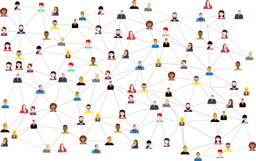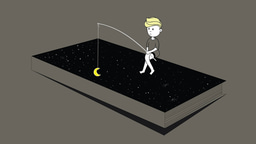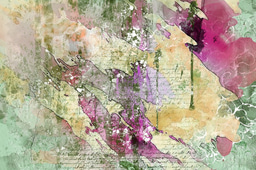To Find Writers, Look Beyond Talent
Published in Neuroscience

Author: Jovi Nazareno, student at Harvard University Extension School.
When valued as an art, writing carries an implication of talent. I have met many students and colleagues, young and old, who say that they “just can’t write”. I always wonder how they came to believe such a lie. Yet the idea that we are each born with (or without) a talent is as relevant today as centuries ago. Even the well-known Shakespeare could not escape from debates rooted in questions of his talent.1 How could he have acquired such talent?
Despite research and observations from the classroom, at home, or elsewhere regarding education and learning, the thought that somehow someone is special, a natural, or just has “it” continues to fascinate us. And the person who overcomes the odds and stretches beyond what seemed like innate limitations becomes the “exception to the rule”.
If this is true, then the naturally talented person with “it” is special, the one who achieves despite lack of innate talent is an “exception”, and everyone else is what? Not talented? Incapable? In a way, the talented person and the exception are alluring because they allow us to marvel at their ability while accepting our own status quo. If being a good writer is the exception, then we can perhaps forgive our own shortcomings, attributing them instead to a lack of talent or not being one of those exceptions.
The problem is that despite the awe of talent, talent isn’t everything. Think about what defines a talented writer (perhaps a favorite author), for example. While we might continue to attribute writing talent to some ill-defined trait that makes one “good with words”, also consider the efforts and time one puts into writing. For educators, parents, and mentors, it is no surprise that effort is essential, albeit less for some, more for others. But even though natural skill requires execution and use of it, there is still something mesmerizing about talent to the point that we applaud the talent and become bored of the effort.
While the privileged few writers may reap the benefits that talent could bring, everyone else is left behind. Roy Clark, in his book Writing Tools, calls us to view writing as a purposeful craft rather than innate talent.2 Reaching that goal requires understanding the ways we uplift talent and conscious determination to cultivate effort and skill.
Be open to confront your personal biases about talent
If asked whether we would prefer the naturally talented person or the hard worker, many say the latter. Yet when placed in a situation to select such a person, the person with supposed natural talent wins even though the hard worker may be equally capable. The individual with early signs of innate talent is seen as more likely to reach success, regardless of how we think we value hard work. This naturalness bias is apparent in studies of musicians and entrepreneurs,3 and though un-tested, it seems plausible that we are just as biased in our views of writing as well. Basically, we think we value hard work, yet we really love and believe in talent.
In her book Grit, Angela Duckworth describes that “effort counts twice” wherein talent x effort = skills, and skills x effort = achievement.4 Talent alone isn’t enough to become accomplished, which most of us can accept when we think of instances where someone we labeled as talented never really did anything with said talent. On the other hand, someone we labeled as less talented could surpass the achievements of the talented individual because of diligence, hard work, not giving up. Think of famous authors, like J. K. Rowling, who received rejections yet became admired writers.5 If the writers we label today as “talented” gave up, stopped writing, and moved on with their lives, we certainly would be missing out on great stories. The problem is that, as mentioned above, our perceptions of talent and effort are conflicting – on one hand, it seems obvious that something more than talent is necessary, on the other, there is something of awe in talent. We need to be conscious of these biases to avoid falling prey to negative self-fulfilling prophecies about ourselves and others.
Avoid the myths, misconceptions, excuses
When learning something, such as writing, we should begin by contesting the idea that we either have “it” or we don’t. Such misconceptions not only affect how we believe in ourselves and others but also serve as an excuse to not even try. The Pygmalion effect describes the phenomenon of receiving progress where you expect progress.6 If you don’t even try, or don’t even believe that others should try, of course progress will be lacking.
With the many myths prevalent about the brain and how the brain works, it is much too easy to find an excuse for why a new skill is difficult for yourself or others. For example, perhaps you think we use only 10% of our brains, are left-brained or right-brained, or have one preferred learning style.7 Perhaps you have been led to believe that there are stark differences between men’s and women’s brains. Such myths are just not true,8 and when combined with a search for only innate talent, this leaves us in danger of missing the many unique persons right in front of us.
We are not necessarily limited in how we can think and learn. Evidence in epigenetics explains that the environment can change how genes are expressed.9 Simply put, the question is not whether nature or nurture wins out but how our innate abilities, circumstances, and choices interact. The connections in our brain can and do adapt throughout our lifespan, whether for the good or the bad.10
Assume that the game-changer is you
This is good news for learning! A professor I had was once asked, “how do you know if you’ve reached your potential?” to which she responded, “just assume you haven’t.”11 Sure, there is genetic influence on how we gain new skills, but do we really all have the “eye” to find and label such genetic talent in someone? When we name someone who is talented, did that person reach success on innate ability alone? No and no. Your own perseverance and the belief in those around you are the actual game-changers that deserve more or at least just as much attention as talent. This means believing that the talent you admire can be learned.
Originally published by Conexiones.
References
1 Hechinger, P. (2011). Did Shakespeare really write his plays? A few theories examined. Retrieved from http://www.bbcamerica.com/anglophenia/2011/10/did-shakespeare-really-write-his-plays-a-few-theories-examined
2 Clark, Roy P. (2006). Writing tools: 55 essential strategies for every writer. New York: Little, Brown Spark. pp. 3-8.
3 Tsay, C.-J., & Banaji, M. R. (2011). Naturals and strivers: Preferences and beliefs about sources of achievement. Journal of Experimental Psychology, 47(2), 460–465. https://doi.org/10.1016/j.jesp.2010.12.010
Tsay, C.-J. (2015). Privileging naturals over strivers: The costs of the naturalness bias. Personality and Social Psychology Bulletin, 42(1), 40–53. https://doi.org/10.1177/0146167215611638
4 Duckworth, A. (2016). Grit: The power of passion and perseverance. New York: Scribner. pp. 35-51.
5 6 famous authors who once faced rejection. (n.d.). Retrieved from https://wildmindcreative.com/bookmarketing/6-famous-authors-who-once-faced-rejection.
6 Rosenthal, R., & Jacobson, L. (1968). Pygmalion in the classroom. The Urban Review, 3(1), 16–20. https://doi.org/10.1007/BF02322211
7 Howard-Jones, P. A. (2014). Neuroscience and education: Myths and messages. Nature Reviews Neuroscience, 15, 817.
8 For more information, see: Tokuhama-Espinosa, T. (2018). Neuromyths: Debunking false ideas about the brain. New York: W. W. Norton & Company.
9 Feil, R., & Fraga, M. F. (2012). Epigenetics and the environment: Emerging patterns and implications. Nature Reviews Genetics, 13, 97–109.
10 Doidge, N. (2007). The brain that changes itself: Stories of personal triumph from the frontiers of brain science. New York: Penguin Books.
11 These quotes are constructed based on my memory of a class discussion. The class is titled PSYC E-1609, Neuroscience of Learning: An Introduction to Mind, Brain, Health, and Education, at the Harvard University Extension School (Instructor: Tracey Tokuhama-Espinosa, Ph.D.).
Follow the Topic
Your space to connect: The Psychedelics Hub
A new Communities’ space to connect, collaborate, and explore research on Psychotherapy, Clinical Psychology, and Neuroscience!
Continue reading announcement




Please sign in or register for FREE
If you are a registered user on Research Communities by Springer Nature, please sign in